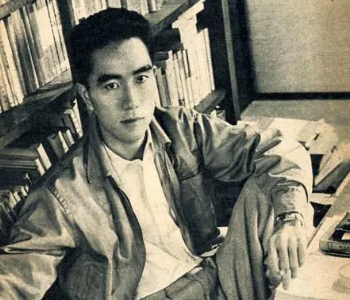In the starry sky of ancient Chinese thought, Han Feizi and Guiguzi are two shining stars, representing the Legalist School and the Military School respectively. Although they lived in similar times and had profound influences on later generations' political and military theories, historical records have not provided clear evidence of a direct relationship between them. This article will explore the possible connections between Han Feizi and Guiguzi's thoughts and their positions in the history of ancient Chinese thought.

Han Feizi, a representative figure of the Legalist School during the Warring States period, advocated a combination of rule by law, administrative techniques, and power. He emphasized the importance of monarchic absolutism and centralized power. His thoughts played a crucial role in supporting the theoretical foundation for Qin's unification of the six kingdoms. On the other hand, Guiguzi, an outstanding representative of the Military School, is renowned as a master of military strategy and tactics. His work "Guiguzi" covers various aspects such as strategy, tactics, and diplomacy.
Although Han Feizi and Guiguzi have their respective focuses in their doctrines, their thoughts are not entirely disconnected. For instance, Han Feizi mentioned "shu" (art of governance) in "Gu Fen," referring to the art of power politics that monarchs should master, which shares similarities with the strategies and tactics emphasized by Guiguzi. Both emphasized the importance of adapting strategies to changes in the times and practical situations.
Furthermore, Han Feizi and Guiguzi both lived in the Warring States period, an era filled with wars and political struggles. Their thoughts and theories were shaped within this broader context, reflecting the needs and issues of the time. From this perspective, their thoughts can be considered products of the same historical era, both attempting to provide solutions to contemporary problems.
However, despite the possible connections between Han Feizi and Guiguzi's thoughts, there is no evidence of a direct mentor-disciple relationship or other personal connections between them. They belonged to different schools and developed unique theoretical systems. In summary, while Han Feizi and Guiguzi were both significant thinkers during the Warring States period, their relationship is more of a parallel in thought rather than a direct intersection. They represented the Legalist School and the Military School respectively, each making significant contributions to ancient Chinese political and military theories. By understanding their thoughts, we can gain a deeper understanding of the ideological lineage and social changes during the Warring States period.
Disclaimer: The above content is sourced from the internet and the copyright belongs to the original author. If there is any infringement of your original copyright, please inform us and we will delete the relevant content as soon as possible.






























